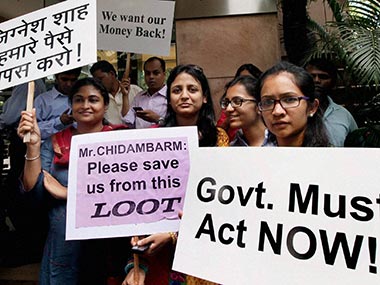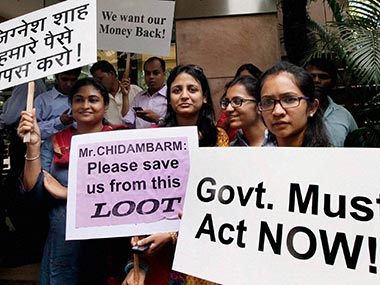The Bollywood actor Akshaye Khanna lost Rs 50 lakh by giving the money to a firm that promised to double the money in 45 days by investing in commodities. The NSEL (National Spot Exchange Limited) has managed to default on Rs 5600 crore of its obligations to its investors. NSEL has done what the BSE (Bombay Stock Exchange) never did in its big bad world of “Badla” days. Should one feel sorry for Akshaye Khanna or the numerous investors who lost money in NSEL?
The answer is a clear no. Doubling money in 45 days is a sure fire way to lose money. Akshaye Khanna had money to lose and instead of spending it, he chose to make others rich with his money. NSEL investors ignored regulated markets and exchanges and chose to try and make quick profits in an opaque and unregulated market. They do not deserve any sympathy. However, the law must take its course on those who aim to cheat investors of their money, even if the investors are rich enough to lose the money.
[caption id=“attachment_1114589” align=“alignleft” width=“380”]  The cases of rich investors losing money abound. PTI[/caption]
The cases of rich investors losing money abound. The Madoff ponzi scheme in the US that went bust saw a lot of wealthy investors lose money. The collapse of hedge funds post the 2007-08 mortgage bubble burst again saw wealthy investors lose money. In fact the industry of trying to take money from the wealthy is as old as civilization itself as after all what does a few Rupees or Dollars mean for the wealthy.
The wealthy have clearly done something right to earn the status. However, when it comes to moving away from their core, many of them are not as successful as they would like to be. For example, a tech millionaire may just flounder when it comes to investing in markets or any other businesses. There is obviously no harm in trying to make the right investments, but if investments are to make others wealthy, then it does require a relook.
The behaviour of the wealthy when it comes to investments raises the question of “would it have been different if they had less money to lose?”. Unfortunately the answer is still no. The cases of retail investors losing money in ponzi schemes are even higher than wealthy investors losing money in such schemes. In India, the Tamil Nadu police became so fed up with such scams that they threatened to arrest investors who invested in such promised high return schemes.
The stock market investor too behaves predictably. In the April-September 2013 period, investor folios in mutual funds have dropped by Rs 20 lakh from a total of Rs 3.31 crore to Rs 3.11 crore (SEBI data). The Sensex is at close to record highs and the price earnings ratio of the Sensex is around 18x. The very same retail investors flocked to equity markets in 2007 when the Sensex touched record highs in 2007 when the Sensex PE was over 25x. Investors have actually bought high and sold low in PE terms.
The make money quick mentality of investors, wealthy or otherwise will never go away. There is a huge industry out there to cater to this greed. On the markets side, there are daily tips services, technical analysis recommendations, multi bagger recommendations and other such products to cater to short term money making aspirations of investors. Then there are the high return investment schemes that promise extraordinary returns from investments ranging from turkeys to guar seeds. All it takes for investors to take the right investment decision from such money making products is just a few minutes spent on knowing more about the product.
If one wants to lose money there are many other exciting ways of doing so. Gambling in Casinos and Horse Racing is both fun and are sure fire ways to lose money. Donations to charity are a noble way of giving away money. Making others rich with one’s own greed does not really go down too well.
Arjun Parthasarathy is the Editor of www.investorsareidiots.com a web site for investors.


)
)
)
)
)
)
)
)
)



